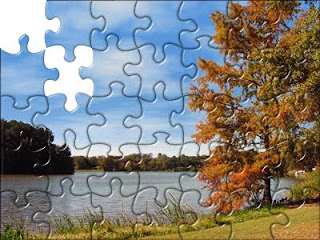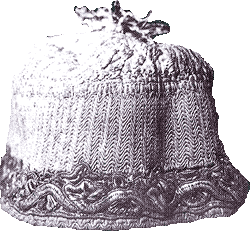Question & Answer With Rabbi Shais Taub - Iskafia

How would you suggest a person practice iskafia in his daily life without vearing too far to an extreme?
Rabbi Shais Taub answers:
We all have our insides and our outsides; in other words, who we are and what we do. The premise of the Alter Rebbe’s Tanya is that our focus should be on our outsides, monitoring and controlling our behaviors in spite of our insides which may or may not be congruent with those behaviors. The simple reason for this approach is that while we are completely in control of what we do, we do not have much say over who we are.
To put it simply, there’s no point in bemoaning the fact that you don’t feel like taking healthy actions. The point is to take those actions whether you feel like it or not.
Now, where does that leave our insides? Are we to totally ignore the selfish, instinctive drives that resist healthy behavior?
Not at all. We are meant to refine ourselves to whatever extent possible. We should try to bring our insides into alignment with our outsides. It’s just that we don’t put off changing our behaviors while waiting for our ideas, emotions and attitudes to catch up.
There are various methods for working on our insides and changing who we are. The most important method is hisbonenus – discursive contemplation on the existence and nature of G-d. By focusing the intellect on these matters, we begin to foster a new outlook on life and eventually change the way we feel so that we will genuinely desire the proper behaviors. This process is transformative, meaning that we actually redirect and reshape our instinctive desires so that they become more holy.
There is another method of internal work that takes quite a different approach. Iskafia – literally subjugation – is the practice of stifling one’s instinctive drives through self-denial. This is an almost opposite, but complementary approach to self-transformation through meditation. The end goal of both is the same. The difference is that in meditation the aim is to truly sublimate unwholesome desires and that in iskafia, the point is to repress them. The purpose of the repression is not to become unconscious of these drives but, to the contrary, to deliberately hold them at bay and exert self-mastery over them. This idea, by the way, is very unpopular in Western thinking. The neo-Freudians will tell you that repression is a source of disease. Of course, they are speaking about repression as an automatic defense mechanism that is unconscious and automatic, whereas we are speaking about a deliberate practice. When speaking with these types, we may avoid some problems by translating iskafia as suppression, rather than repression, but this kind of semantic hair-splitting is at best really only throwing them a bone. Western attitudes are disdainful, or at least suspicious of such things as epitomized by Oscar Wilde’s quip, “The only way to get rid of temptation is to give into it.”
Perhaps the crux of this misunderstanding lies in a lack of appreciation for the goal of self-denial. The purpose of iskafia is not to delay or avoid dealing with desires of which one is ashamed. The purpose of iskafia is to acknowledge, identify and address these impulses so that they actually become quelled. It is a process of self-training, the end result of which is that the person gain a degree of freedom from instinctive drives. In other words, one practices iskafia in order to master oneself, to become “a balabos af zich.”
The understanding that this is the true purpose of iskafia becomes more clear when one considers that iskafia need not only be applied to situations where one stifles immoral or forbidden urges. Iskafia can and should be practiced to subdue completely permissible desires as well. If the purpose of iskafia were repression for repression’s sake, then it would only be applicable where the desire being repressed was somehow deemed as shameful or wrong. But since the point of iskafia is to gain dominance over one’s desires, it can just as well be applied to curbing any desire, even desires of an innocent nature. The effect is the same.
A classic example of this may be seen in terms of one who eats permissible food but delays the time of his meal in order to study Torah. (Tanya, ch. 27) There is nothing wrong with ceasing from one’s studies in order to eat. I mean, you gotta eat. But putting off eating for any amount of time is an exercise in self-discipline. It’s a way of showing the instincts whose boss. It’s like refusing to acquiesce to the tantrum of a child. In other words, iskafia is self-education.
In practicing iskafia, one should be mindful of this purpose. This will help to ensure that one does not inadvertently cross the line between self-education and self-abuse. You don’t have to pain yourself; you have to train yourself.
Another example of iskafia (also from ch. 27 of Tanya) is withholding speech. We’re not talking about forcing oneself to refrain from forbidden talk. When one refuses to speak gossip or slander, the goal is not to engage in the process of training oneself; the goal is to avoid committing a transgression at that moment. In contrast, if one has an opportunity to indulge in completely innocent self-expression and instead stifles that urge, he actually practices self-refinement.
Iskafia should be unnoticeable to outside observers. If one draws attention to oneself, then any gain of self-refinement is directly offset by an increase in self-pride. If you refrain from eating dessert but everyone knows about it, then you really haven’t held your selfish drives in check, you’ve just replaced one indulgence with another – in this case physical pleasure for emotional validation.
This leads us to another important idea. Iskafia is not just eating your bread without butter. Indeed, in an affluent society such as ours, eating bread without butter may be as pretentious as wearing a hair-shirt. Iskafia means knowing that you are not beholden to gratify the ego’s desires. Choosing to forgo emotional validation can be one of the most powerful means for weaning the ego from its position of entitlement. In other words, iskafia means taking out the garbage and even though you feel like mentioning it to your wife so that she can acknowledge your deed, choosing instead to say nothing.
Iskafia means being aware of our instincts and being honest about how they would rule our lives if we would let them, then using conditioning so that these drives will reduce themselves to a more functional size. If through indulgence, we teach our animal to become ever more demanding, then through iskafia, we put it in its place.









































